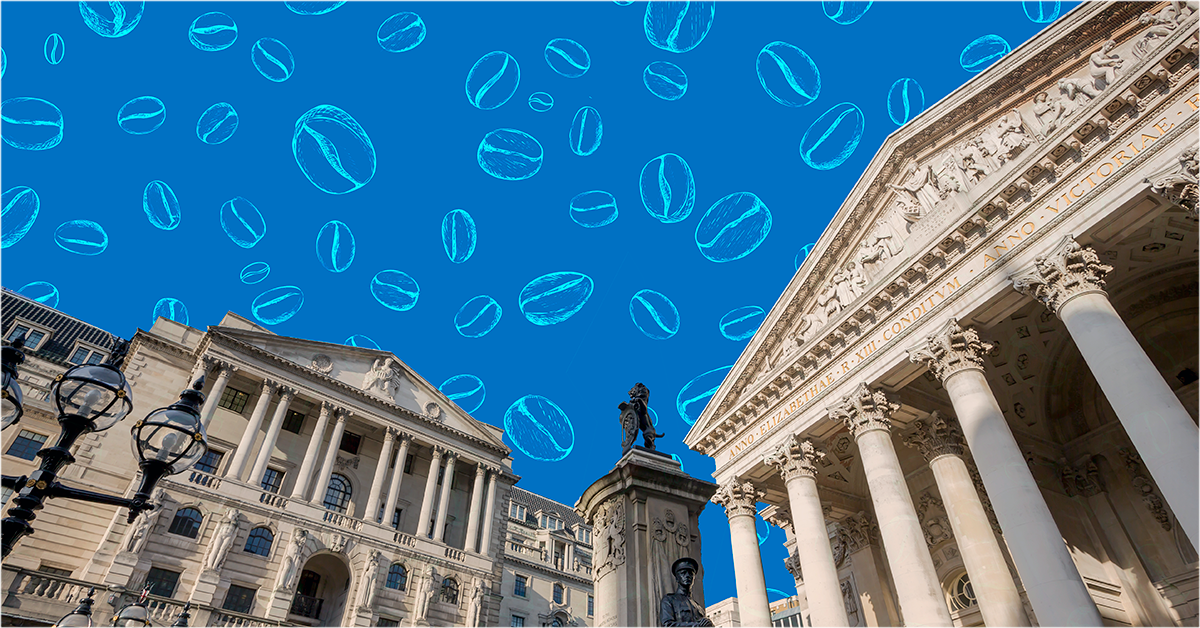
In the tapestry of global finance, there exists a rich history woven with threads of innovation, resilience, and ambition. From the humble origins of trading in coffee houses to the grandeur of iconic stock exchanges, the world's financial hubs have evolved, shaping the way we perceive and engage with commerce today.
In this Blog, Speakerbus’ we take you on a journey through the corridors of time, tracing the footsteps of traders, brokers, and visionaries whose endeavours laid the foundation for modern markets.
London
I'm intrigued by how money trading started by means of these exchanges and coffee houses.
These beautiful buildings were where the Finance industry started around the world with The Royal Exchange in London being opened by Elizabeth I in 1571. Strangely enough, during the 17th Century, stockbrokers were not allowed inside the Royal Exchange due to their rude manners, so they conducted their business in a nearby vicinity, notably, Jonathan's coffee house. At this coffee house, a broker named John Caisting started listing the prices of a few commodities such as salt, coal, paper and exchange rates.
As stocks grew, with new companies joining to raise capital, the royal court also raised some monies. These are the earliest evidence of organised trading in marketable securities in London.
New York
The earliest recorded organisation of securities trading in New York among brokers directly dealing with each other can be traced to the Buttonwood Agreement. Previously, securities exchange had been intermediated by the auctioneers, who also conducted more mundane auctions of commodities such as wheat and tobacco. On May 17, 1792, twenty-four brokers signed the Buttonwood Agreement.
After re-forming as the New York Stock and Exchange Board, the broker organisation began renting out space exclusively for securities trading, which previously had been taking place at the Tontine Coffee House. Several locations were used between 1817 and 1865, when the present location was adopted.
Chicago
The Chicago Board of Trade (CBOT) was established on April 3, 1848, and is one of the world's oldest futures and options exchanges.
The concerns of US merchants to ensure that there were buyers and sellers for commodities have resulted in forward contracts to sell and buy commodities. Still, credit risk remained a serious problem. The CBOT took shape to provide a centralised location, where buyers and sellers can meet to negotiate and formalise forward contracts.
An early 1848 discussion between Thomas Richmond and W. L. Whiting regarding the propriety of creating a board of trade led to the March 13 meeting of merchants and businessmen in favour of establishing it and a resulting resolution for such an establishment and a Constitution.
Paris
In the early 19th century, the Paris Bourse's activities found a stable location at the Palais Brongniart, or Palais de la Bourse, built to the designs of architect Alexandre-Theodore Brongniart and completed by Eloi Labarre.
There were around 60 agents de change (the official stockbrokers). Officially, the agents de change could not trade for their own account nor even be a counterpart to someone who wanted to buy or sell securities with their aid; they were strictly brokers, that is, intermediaries.
In the financial literature, the Paris Bourse is hence referred to as order-driven market, as opposed to quote-driven markets or dealer markets, where price-setting is handled by a dealer or market-maker. In Paris, only agents de change could receive a commission, at a rate fixed by law, for acting as an intermediary.
Frankfurt
The origins of the Frankfurt Stock Exchange go back to medieval trade fairs in the 11th century. By the 16th century Frankfurt developed into a wealthy and busy city with an economy based on trade and financial services.
In 1585 a bourse was established to set up fixed currency exchange rates, which is considered to mark the 'birth' of the stock exchange. During the following centuries, Frankfurt developed into one of the world's first stock exchanges - next to London and Paris. Bankers like Mayer Amschel Rothschild and Max Warburg had a substantial influence on Frankfurt's financial trade.
Let’s Talk
At Speakerbus, we understand financial markets and their distinctive needs, so by partnering with us for our exceptional cloud services, we emerge as a strategic choice, guaranteeing seamless cloud integration, expert navigation of trader voice complexities, and ongoing support.
With Speakerbus as a trusted ally, clients can embark on their cloud journey confidently, fostering a resilient and innovative technological foundation for clear collaboration and sustained success.
If you’d like to learn more about how Speakerbus can empower your firm, head to our solutions page or get in touch with our experts today.



